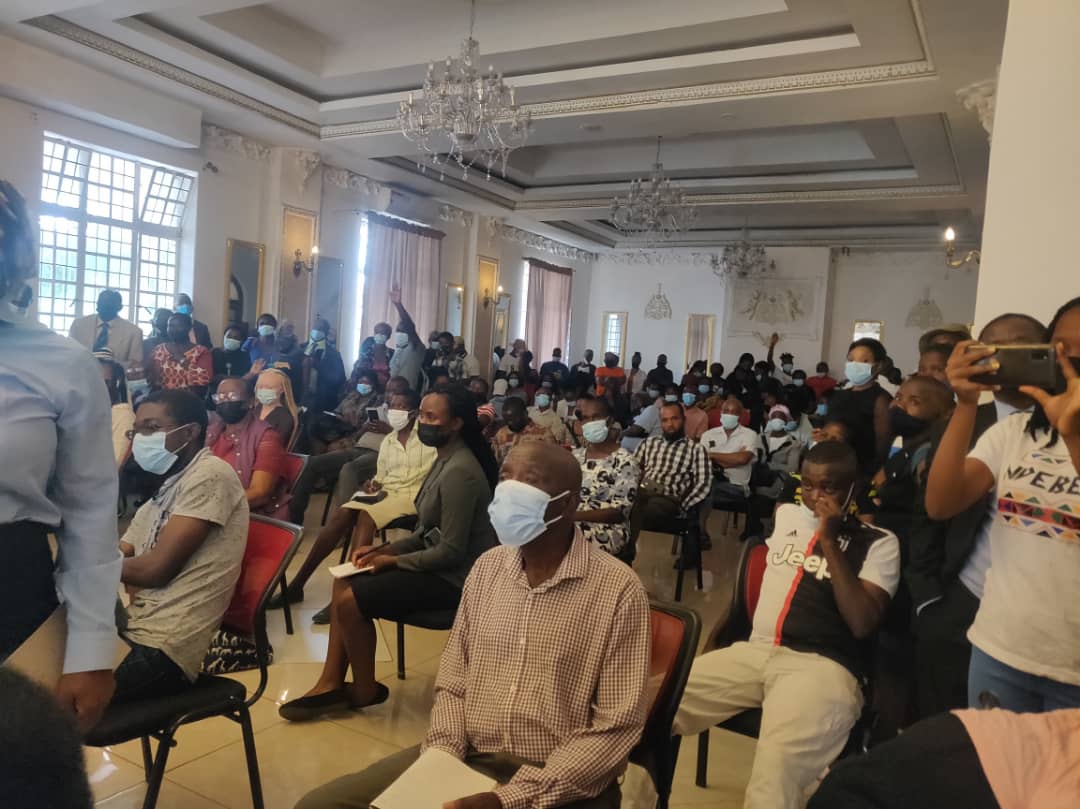Zimbabweans have expressed mixed feelings over the Private Voluntary Organisations (PVO) Amendment Bill, with some supporting it, others calling for revisions, and another section outrightly opposing it.
This is contained in the Joint Portfolio Committees on Public Service, Labour and Social Welfare, and the Thematic Committee on Gender and Development report presented to Parliament.
The joint committees conducted public consultations on the Bill from May 12 to 17, 2024.
In its report, the joint committee observed that some members of the public were not fully aware of the Bill’s provisions, resulting in irrelevant contributions.
The joint committee noted public fears that NGOs, especially those in the humanitarian sector, might fail to register within the stipulated 30-day period, risking deregistration amid an El Nino-induced drought.
The report noted that some members of the public and CSOs believed the PVO Amendment Bill would lead to the removal of all NGOs in Zimbabwe.
“However, the Committee believes that the Government is mindful of the supportive role played by PVOs in assisting disadvantaged members of society such as persons with disabilities, women, youth, children, and the elderly, and will not arbitrarily use the law to close genuine PVOs,” said Dorothy Mashonganyika, Chairperson of the Parliamentary Portfolio Committee on Public Service, Labour and Social Welfare, during the Second Reading of the PVO Amendment Bill in Parliament on Thursday.
Mashonganyika said CSOs were concerned about the lack of a right to appeal, which removes the courts’ jurisdiction and the right to a fair hearing since appeals from the Registrar’s decision go to the Minister, who may uphold the Registrar’s decision or refer it back to the Registrar, rather than to the High Court.
In light of these observations, the joint committee recommended that the timeframe for PVO registration be extended to at least nine months to allow for proper vetting and submission of all necessary paperwork.
Regarding appeals from the Registrar’s decisions, the joint committee recommended that the High Court be the highest authority to allow the right to appeal and a fair hearing.
It was also recommended that the Bill should clearly define and specify the political activities that PVOs should not support, as Clause 10 is unclear about what supporting or opposing a political party or candidate entails.
In response to fears of victimisation and closure raised by NGOs, the Committee recommended “collaboration between the Government and NGOs.”
The joint committee found that some members of the public supported the Bill, stating that PVOs needed to be regulated at a higher level since some misused donor funds for personal gain.
“It was highlighted that as long as PVOs operate in good faith, adhering to their mandate and maintaining transparency, they would not be adversely affected by the new amendments,” Mashonganyika said.
“Some NGOs were accused of using communities to source funds, which were never used for the benefit of those communities.”
However, other members of the public said the Bill, as currently drafted, imposes broad and restrictive measures that could undermine the operational effectiveness and independence of the Non-Profit Organisations sector, since all civil society organisations need to be registered as PVOs.
Another public concern was that Ministerial intervention and harsh penalties could lead to self-censorship and discourage NPOs from engaging in advocacy and human rights work.
Mashonganyika said CSOs were particularly concerned about Clause 3, which removes the PVO Board and replaces it with the Registrar of PVOs, who would be the registration and regulatory authority.
CSOs called for the involvement of a board to investigate issues before any ministerial intervention and recommended incorporating judicial oversight mechanisms to ensure that decisions to suspend or dissolve PVOs are subject to independent review.
Another proposal was to maintain the PVO Board instead of having the Registrar, and to include more members appointed by CSOs on the PVO Board.
CSOs also proposed creating a self-regulating National Council of PVOs and convening a PVO Forum instead of having the Registrar. This proposed council would adopt its own structure and by-laws.
CSOs opined that the 30-day registration deadline was “too short” and could result in the disqualification of some already operating NGOs.
They also complained that the Bill does not provide time limits within which the Registrar must determine the application for PVO registration.
Another concern was the lack of clarity on registration requirements and fees, which CSOs proposed should be clearly stated in the Bill.
“Furthermore, there was a call to remove criminal sanctions, which currently involve level 12 penalties and one-year imprisonment, and replace them with fair penalties such as fines,” Mashonganyika said.
Mashonganyika noted that the public supported Clause 8, emphasising the need for PVOs to disclose the source of their funding to the Reserve Bank of Zimbabwe and for such funds to come through the central bank for monitoring purposes.
However, some CSOs called for a clear definition of illegitimate and immoral sources of donations.
The committee reported that Clause 10 is unclear about what supporting or opposing a political party or candidate entails and proposed that the provision should specifically prohibit financing campaigns and partisan political support.
It was further proposed that criminal sanctions involving level 12 penalties or one-year imprisonment should be limited to the payment of fines.

